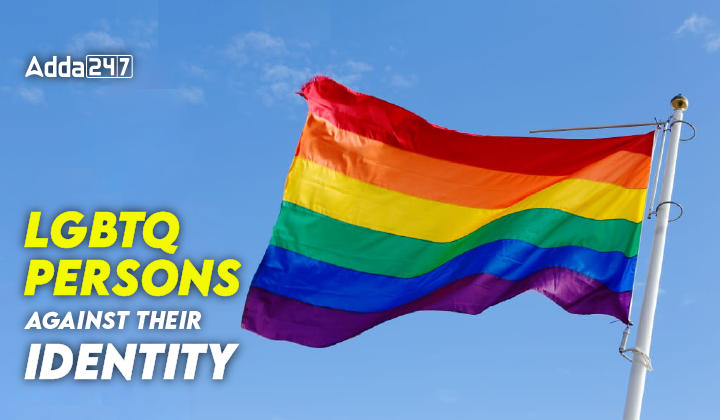Table of Contents
The Supreme Court of India warned against using court-ordered counseling to change LGBTQ+ individuals’ identities, emphasizing respect for their choices and the significance of their chosen families.
Relevance: GS I (Social Issues)
Background
- The Supreme Court warned against using court-ordered counseling to change the identities and sexual orientations of LGBTQ community members.
- A three-judge bench led by Chief Justice D.Y. Chandrachud emphasized the importance of respecting an individual’s identity and sexual orientation without trying to alter it through counseling.
- The Chief Justice stressed that judges should avoid imposing their values over constitutional protections.
- The verdict provided guidelines for handling habeas corpus petitions and protection pleas by LGBTQ+ individuals, urging judges to demonstrate empathy and disregard social biases.
- The case arose from a petition by a Kerala woman concerning her same-sex partner, where the Kerala High Court had ordered counseling leading to the partner choosing to stay with her parents.
- The Supreme Court did not intervene in specific cases but addressed broader concerns regarding the potential misuse of counseling to pressure LGBTQ+ individuals against their will.
- Chief Justice Chandrachud highlighted the importance of recognizing chosen families, especially for LGBTQ individuals facing discrimination or violence from their birth families.
History of Recognition of LGBTQIA+ in India
- 1861: British introduction of Section 377 to the Indian Penal Code, criminalizing “unnatural offenses.”
- 1977: Shakuntala Devi’s publication “The World of Homosexuals,” the first study of homosexuality in India.
- 1994: Legal recognition of the third gender with voting rights.
- 2014: The Supreme Court of India recognizes transgender people as a third gender.
- 2017: Supreme Court’s affirmation of the Right to Privacy, safeguarding LGBTQIA+ individuals’ sexual orientation.
- 6 September 2018: Decriminalization of consensual homosexual activities by repealing parts of Section 377.
- 2019: Introduction of the Transgender Persons (Protection of Rights) Act, focusing on rights and welfare.
Challenges Faced by the LGBTQIA+ Community in India
- Social Discrimination: Prevalence in employment, housing, and healthcare sectors leading to potential poverty and insecurity.
- Lack of Representation: Minimal presence in media, politics, and governance, hindering voice and needs recognition.
- Mental Health Issues: High susceptibility to hate crimes, and verbal and physical abuse, contributing to mental health struggles.
- Rural LGBTQIA+ Silence: Limited exposure and connectivity, leading to suppressed identities and exacerbated abuse.
- Homelessness: High rates among LGBTQIA+ youth due to familial rejection, leading to missed education and increased risk behaviors.
Way Forward
- Supportive Policies and Laws: Development and implementation of protective laws against discrimination, hate crimes, and violence.
- Promoting Inclusive Parenting: Encouraging acceptance and understanding within families to foster societal inclusivity.
- Fostering Diversity and Pride: Creation and promotion of open forums and platforms for LGBTQIA+ youth, celebrating diversity through initiatives like Pride Month and Pride Parades.
Advocating for Equality: Recognizing and treating LGBTQIA+ individuals as equals, emphasizing that sexual orientation is a natural aspect of human diversity.



 TSPSC Group 1 Question Paper 2024, Downl...
TSPSC Group 1 Question Paper 2024, Downl...
 TSPSC Group 1 Answer key 2024 Out, Downl...
TSPSC Group 1 Answer key 2024 Out, Downl...
 UPSC Prelims 2024 Question Paper, Downlo...
UPSC Prelims 2024 Question Paper, Downlo...




